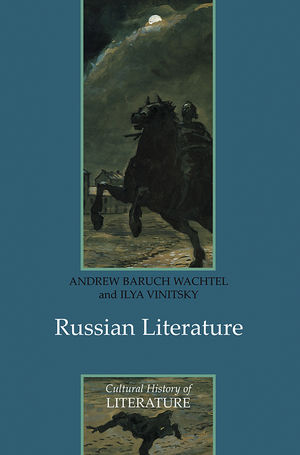Russian LiteratureISBN: 978-0-7456-3686-3
Paperback
244 pages
May 2009, Polity
 This is a Print-on-Demand title. It will be printed specifically to fill your order. Please allow an additional 10-15 days delivery time. The book is not returnable.
Other Available Formats: Hardcover
|
||||||
Slavic and East European Journal
"The authors accomplish a rare tour de force: in remarkably few pages readers are exposed to the entire sweep of Russian literary culture, not as a summary but as an intellectual commentary on a great world literature. A terrific book for students and general readers alike."
Jeffrey Brooks, Johns Hopkins University
"An adventurous and provocative meditation on Russian literary
history that throws unexpected new light on apparently familiar
figures, as well as introducing new writers, new connections, and a
new sense of context. Wachtel and Vinitsky’s account of
Russian literature gives proper emphasis to the pre-Petrine era and
the eighteenth century, as well as the nineteenth and twentieth
centuries, but is much more than a standard potted history. They
are able to emphasise large themes, such as the role of literature
in the rise of nationalism, and at the same time to search out
striking and offbeat examples from sources such as unpublished
memoirs. Their book is one of the most original and stimulating
accounts of the subject to appear in any language."
Catriona Kelly, New College, Oxford
"To transmit the evolving spirit of a culture takes as much
magic as chronology, and this mesmerizing volume delivers the best
of all worlds. At flashpoints over a thousand years, select
persons, artworks, and events are triangulated into miniature
stories, each alive with human faces at thrilling creative
risk."
Caryl Emerson, Princeton University
"This readable, challenging book fills a serious gap in our
studies of Russian literature: it covers the entire history of
writing on Russian soil and it does so as proper history, with well
argued theses about the development of this literature in cultural
context, taking culture in both aesthetic and anthropological
senses of the word. Fresh, persuasive readings illuminate each of
the dozen chapters."
William Mills Todd, Harvard College



